
I already talked about the general plot of the manga on my post concerning time travelling Nobunagas in anime, so I won't add more to the issue but for some complaints about how the concept of the original manga was pretty much inverted making everything dull and boring, but we'll talk about that at the end of the review.
Right now let's focus on our Nobunaga, today portrayed by hyper-popular Shun Oguri.
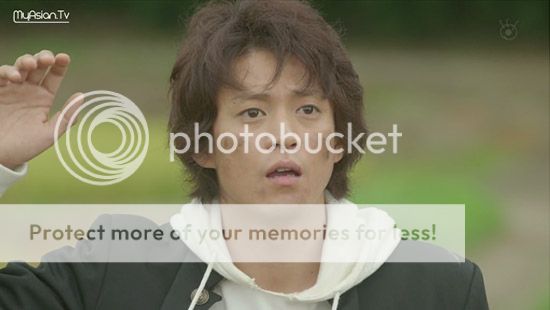


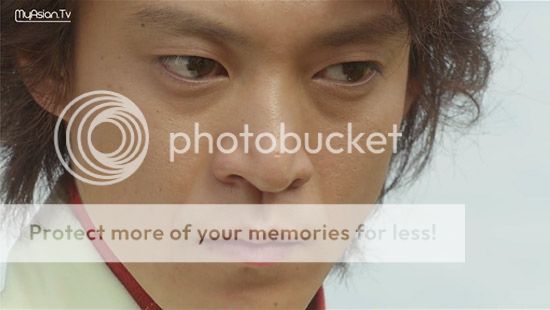
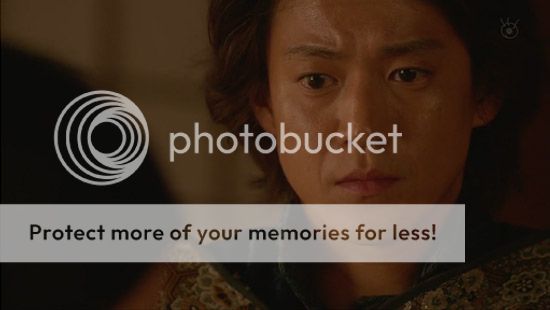
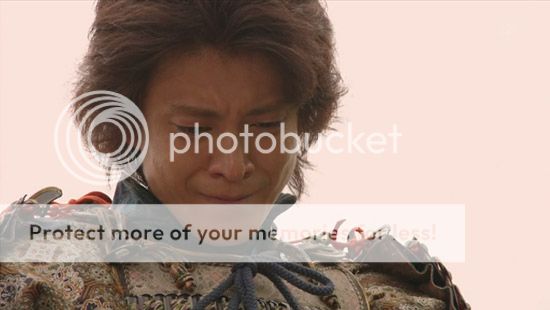
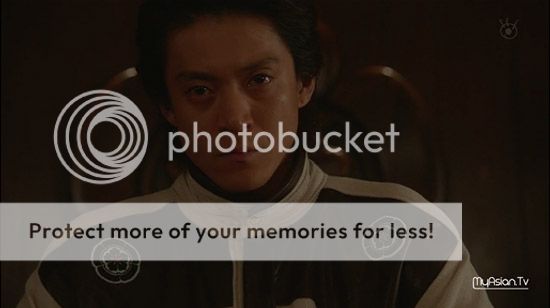
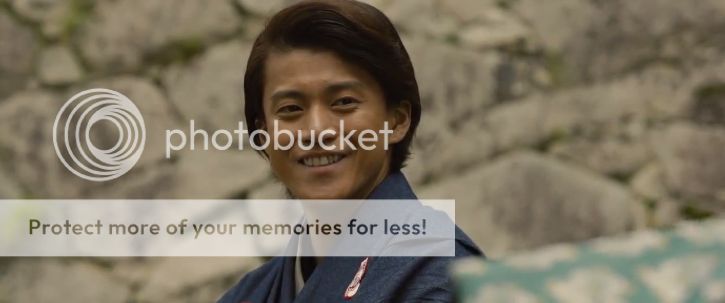
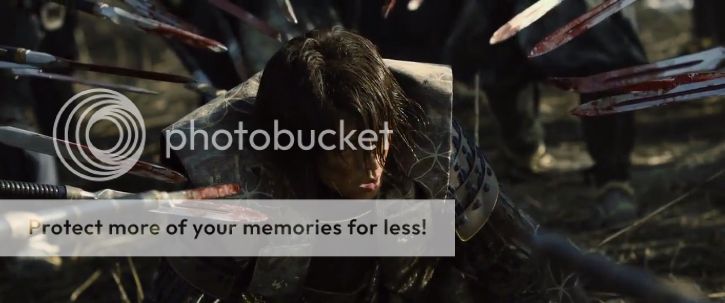
Of course, it has nothing to do with our idea of Nobunaga, since he's an "imposter", but his acting was indeed convincing for his role.
One also gotta think that besides Saburo, the "Nobunaga impersonator", Shun acted also as Mitsuhide, or the "Undercover Real Nobunaga", where he really was a "different person".

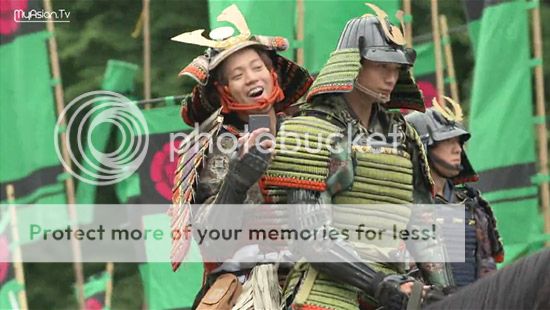
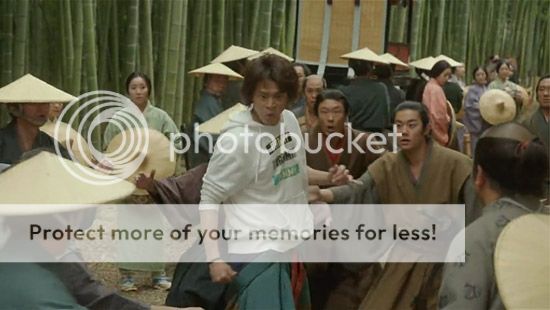
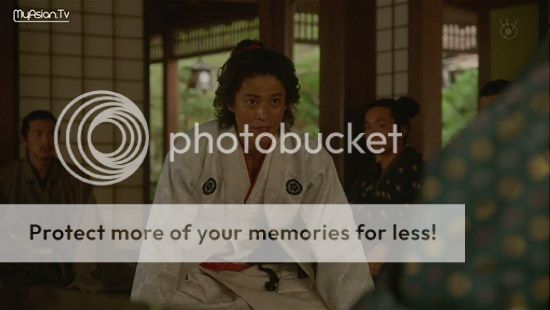
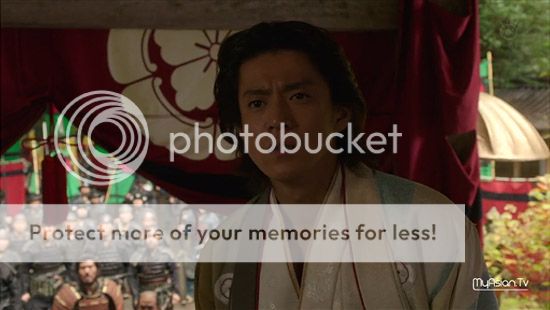

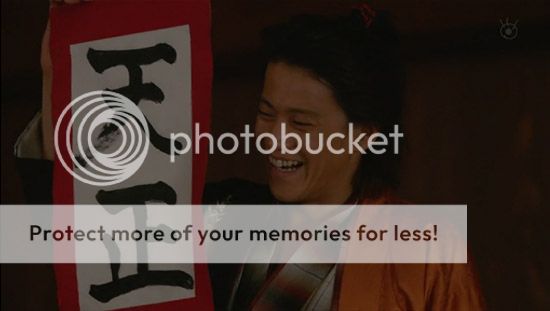
Speaking of the other characters presented in the pieces, I would say that Tsuneoki "Tsune-chan" Ikeda, played by Osamu Mukai, can be considered pretty much a co-protagonist.

The antagonist of the series is Hideyoshi "Saru" Kinoshita, Takayuki Yamada, portrayed as the super-boss. He's such a super-boss that in the end both Saburo and Nobunaga were defeated by him!!

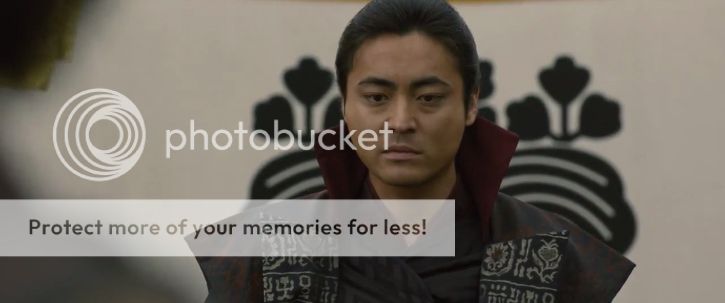
--I was in a kinda fangirly mode everytime Saburo and Hideyoshi were together onscreen as both played in one of my favourite movie saga, "Crows Zero", again as rivals, tehehe.
Another familiar face is that of Toshiyuki Nishida, here playing as fellow time-traveller Saito Dosan:
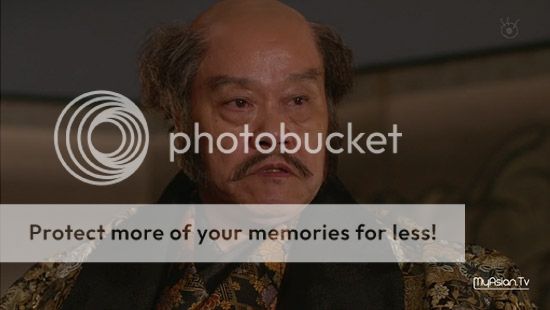
Next we have Nouhime, played by a decent Kou Shibasaki.
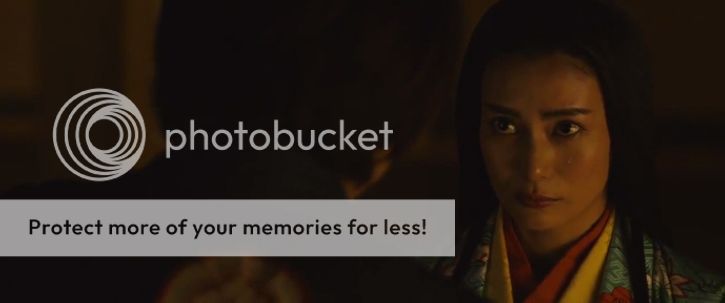
Despite the fantastic set of the drama, I would say that the historical reconstructions of clothes (but Saburo's!) and setting were quite stunning.
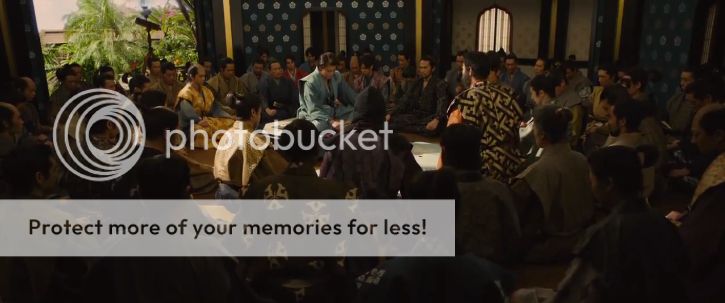
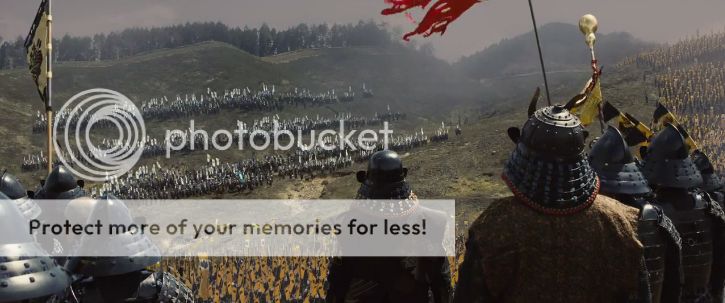
Speaking of which, I found amusing when Nouhime and Oichi (Kiko Mizuhara) were shown playing kaiawase, or shell-matching, a popular court game since Heian period.
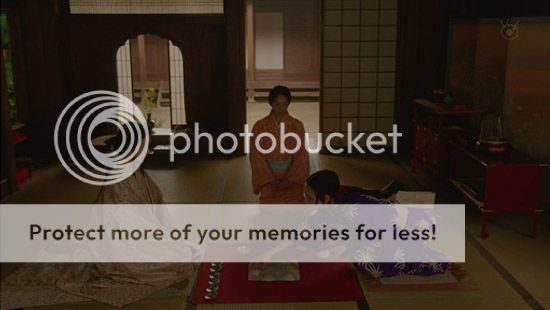
Also Saburo got to play "Atsumori" in this drama:
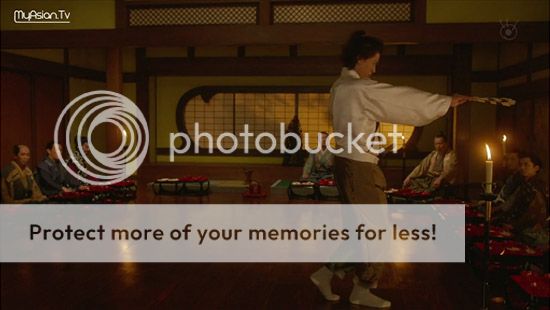
Both in the drama and the movie, Nobunaga is compared to his famous portraits:
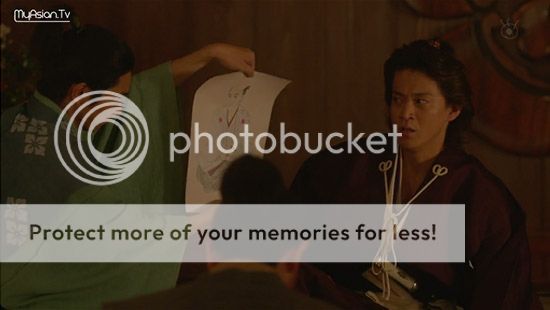

This made me smile, I thought "I hoped so", ahah.
Another amusing bit was the location of the beginning of the TV drama: Saburo and his schoolmates were on a school-trip to Nikko's Edomura∼
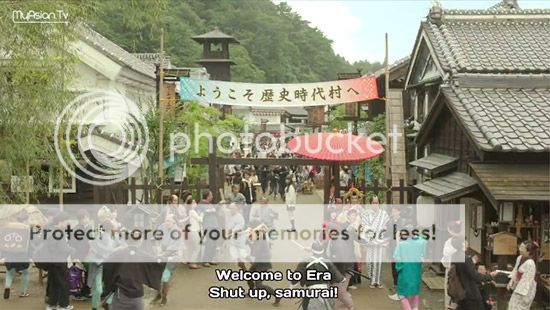
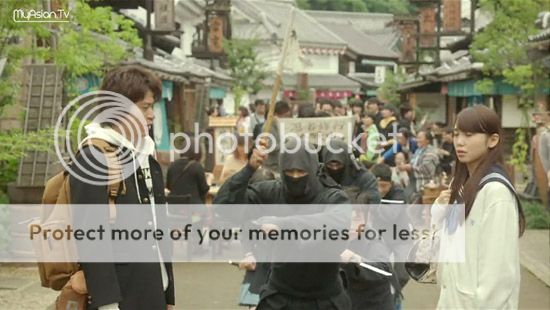
A final word concerning the heraldry featured in the pieces.
I found it quite amusing to see how the "yellow" banner is shown as belonging to Nobuyuki (Yuya Yagira) at first, with Nobunaga sporting multicoloured banners:
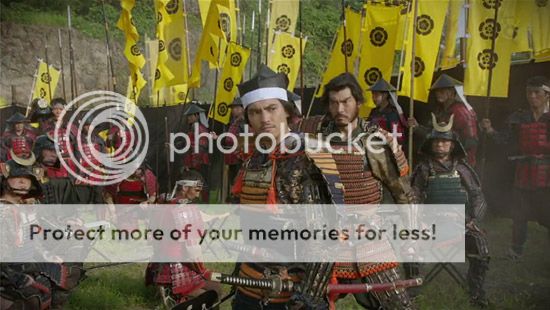
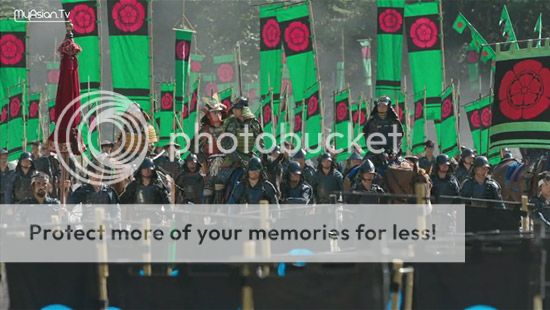
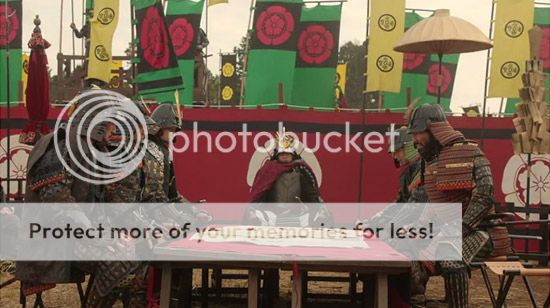

So well, we reached the end of this review.
Compared to the manga, which is a light-hearted commedy with some intense moments, this drama suffers of the presumptions that were poured into it.
The first half is indeed lots of fun, and it would have been better if this was kept a comedy rather than turning into that emotional and emotive stuff that I hate dealing with during my free time.
Probably the concept behind the original manga, that a complete idiot from the current days may turn into a hero of Sengoku times, was perceived as too disrespectful towards the history of the country, so the message was turned into "A modern boy to survive the Sengoku era gotta man-up and play according to its rules".
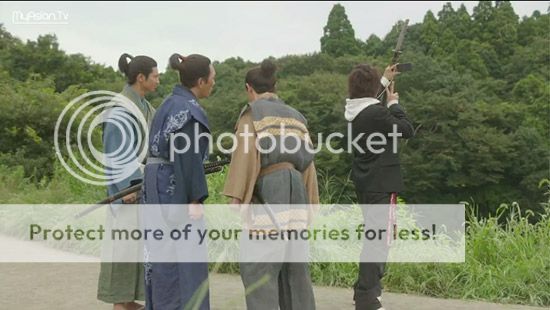
During the series Saburo tries to apply modern concepts, like the treasuring of life and the importance of individuality, and even if everyone agrees, as the important things for human beings are indeed the same in every era, Saburo has to declare his failure in front of "stronger" ideals: the first of it is during Nobuyuki seppuku, seen as admirable and awesome by the vassals, second during the substory of Nagamasa, where he sacrified his happiness for the sake of his clan and vassals, and in the end Saburo himself agreed to be his second during Nagamasa's seppuku-- And then we have the Enryakuji episode, orchestrated by Hideyoshi and supported by Mitsuhide-- A cruel act of violence indeed, that despite Saburo's shock led to the victory against the Ashikaga shogunate. Despite the "big picture" of LOVE & PEACE then, the rules of the past are overwhelming.
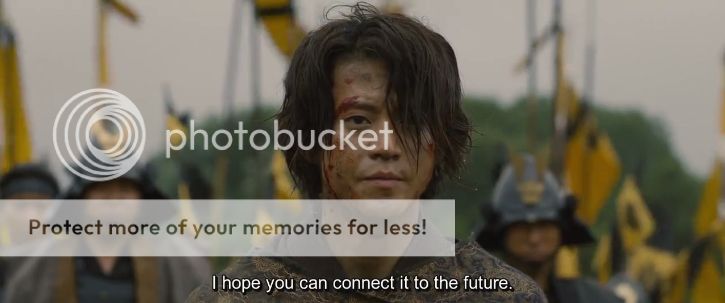
--I WOULD LIKE TO KNOW HOW THIS CONNECTS TO THE 200 YEARS OF SHOGUNATE STARTED BY THE LOOSE-BOWELED DAIMYO, THEN.
No comments:
Post a Comment